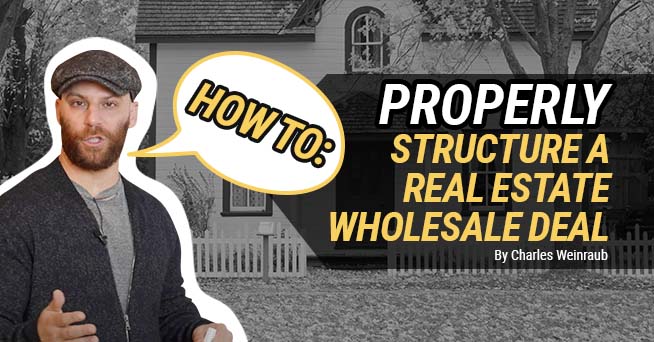
Wholesaling is a great way to get involved in real estate investing. It allows you to negotiate deals while risking minimal capital. But it’s not as easy as just finding a deal, passing it off to someone else and getting paid. It’s vital that you properly educate yourself about the factors involved in wholesaling deals so that you’ll be able to negotiate deals which have a positive outcome for yourself, the seller, and ultimately the buyer. Before getting involved in any deal, be sure to understand the following:
Armed with knowledge about the above, you’ll be able to negotiate a deal where a real estate investor can buy a property, renovate it, and sell it at a profit while at the same time paying your fee for bringing the deal to them.
You’ll want to make sure you have a system to generate quality off-market leads so that any investor you work with can purchase properties at a low enough price to ensure they’ll be able to sell at a profit. It’s also vitally important to have an attorney or group of attorneys familiar with wholesaling deals (don’t just hire an attorney who has handled other matters for you!).
The ideal way to proceed is to get a contract of sale with an assignment clause. An assignment clause allows you to hand off the contract of sale to someone else (i.e., the real estate investor you’re working with) who will close on the sale in your place.
Let’s look at an example where you’ve got a property under contract for $190,000, and your investor has agreed to spend $200,000. The assignment clause in your contract allows you to assign the contract to a third party (the investor). You’ll make a down payment of $5,000 after which the investor:
After this, both you as the wholesaler and the investor you work with are positioned to repeat the process with a new property. Using the system outlined above provides protection for all parties involved and helps to ensure that you all make money on your deals.